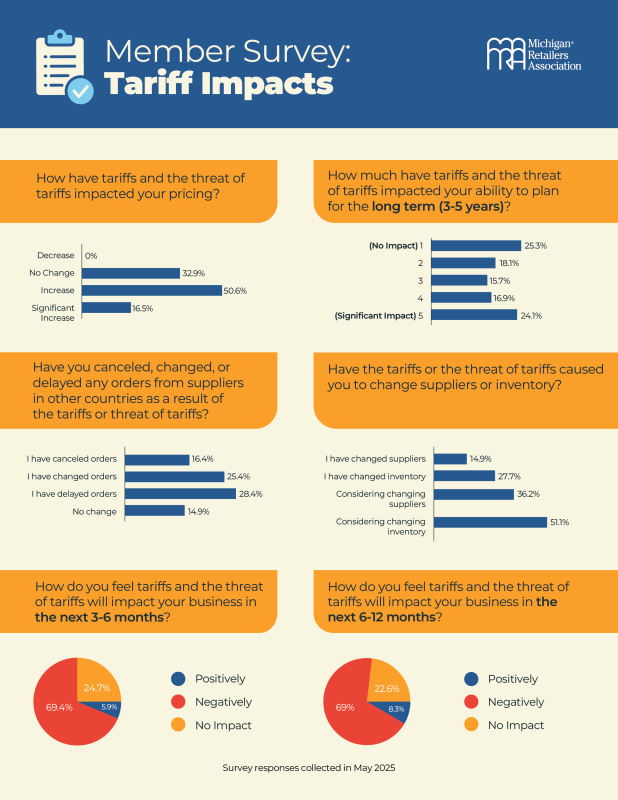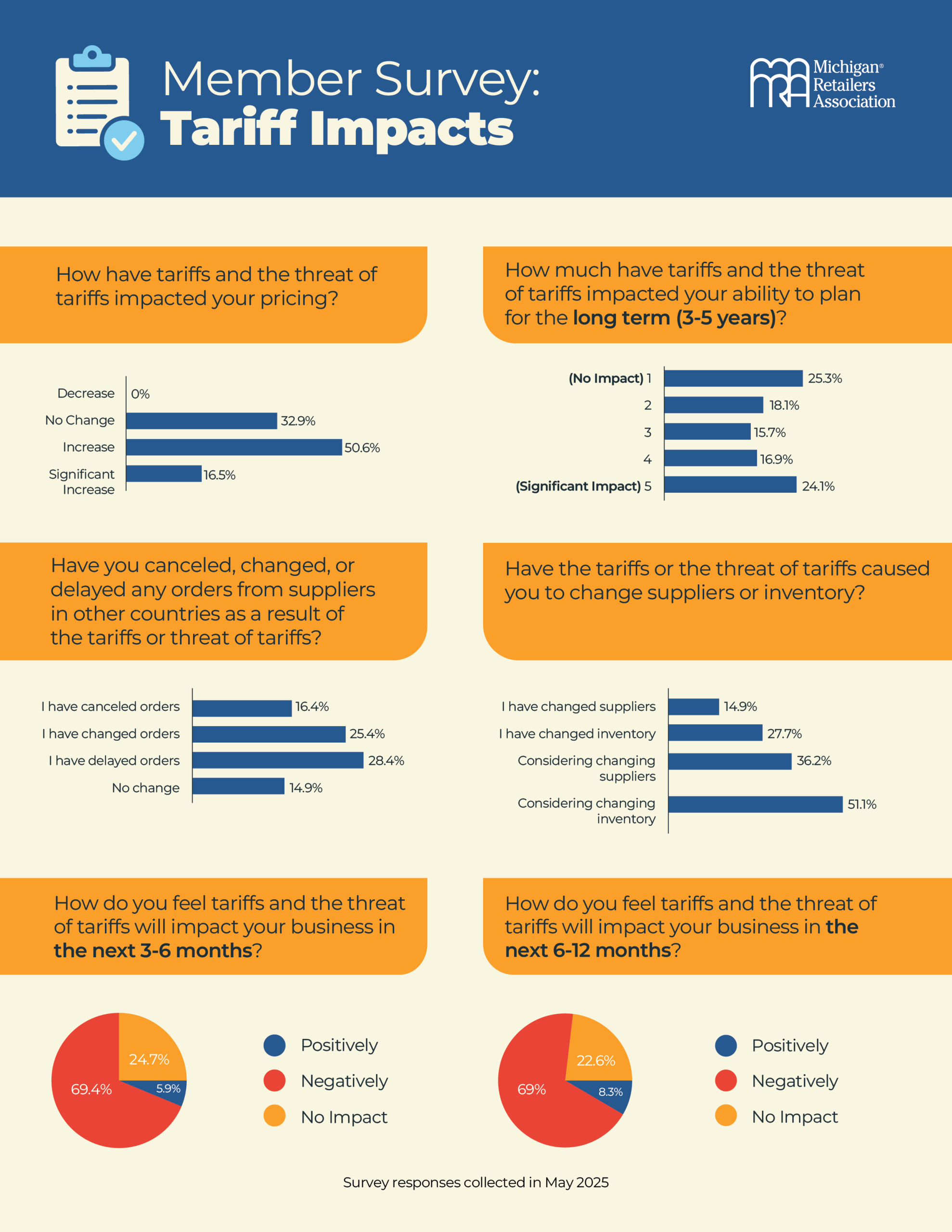
Michigan Retailers Association (MRA) has released results from a May 2025 member survey regarding tariff impacts on small businesses and the retail industry. Following President Trump’s April 2 “Liberation Day” tariffs, many small business owners expressed concerns about how the tariffs would impact their business. As the retail industry supports 27% of jobs in Michigan, according to the National Retail Federation (NRF), legislation impacting retailers and small businesses can have significant effects on local communities.
Importing Goods
According to MRA’s member survey, more than 60% of Michigan businesses import goods from other countries. China, Canada, and Mexico were listed as the top countries from which retailers import goods, followed by Vietnam, India, Italy, Spain, France, and others. Thirty-six percent of members reported they do not import goods.
Survey results indicate that more than 50% of retailers have either changed or delayed orders from suppliers in other countries as a result of the tariffs or the threat of tariffs, while 15.9% have cancelled orders. Some retailers shared that they’ve ordered seasonal inventory in advance to avoid pending tariffs, while others shared that they’ve pressed pause on ordering seasonal inventory and are focusing on restocking only the inventory that has sold and keeping shelves full.
Supply Chain and Inventory Changes
More than half of Michigan retailers and small businesses surveyed claim they are considering changing their inventory due to the impacts of tariffs and the threat of tariffs, while 26.5% have already changed their inventory.
Changes to suppliers are almost as common as changes to inventory, with 36.7% reporting that they are considering changing suppliers, while 14.3% say they’ve already made changes.
Retail Sectors Less Impacted by Tariffs
Some niche markets and specialty stores have been less impacted by tariffs, as they source their inventory locally. “While the majority of our members are sharing concerns about the impacts of tariffs, there is a small sector in our industry that isn’t feeling these pains in the same ways,” shared Bill Hallan, CEO of Michigan Retailers Association. “Vintage and antique stores, thrift shops, and retailers carrying handmade or local products are leveraging the fact that they’re not impacted by tariffs to drive more foot traffic to their stores.”
Pricing Changes
When asked about how tariffs and the threat of tariffs are impacting pricing, two-thirds of retailers reported having to raise prices, and 16.7% reported “significant increases” to pricing because of the tariffs. One-third of respondents reported no changes to pricing yet.
Increasing Uncertainty Among Small Businesses
Beyond pricing and inventory, future planning is one of the most significant areas of impact for small businesses. Retailers and small business owners are being as responsive as they can be to these ever-changing tariffs.
“The inconsistency in which these tariffs are threatened and applied has created a very difficult environment for business owners. The week-to-week and day-to-day changes are hard for local retailers to keep up with. They’re busy running their stores and serving their communities, and they don’t have the same resources as larger stores,” shared Hallan. “Business owners are doing their best to keep their doors open and shelves full.”
A strong 69.4% of retailers feel that tariffs will have a negative impact on their business in the next 3-6 months, with 69% stating those negative impacts will extend even longer to 6-12 months. While 24.7% reported that tariffs will have no impact on their business in the next 3-6 months, only 5.9% of retailers feel that the tariffs will positively impact their business in the same timeframe.
Member Demographic Information
Michigan Retailers Association represents roughly 5,000 members and 15,000 stores and websites across the state. Of members surveyed, more than 75% reported having less than 25 employees and only one physical store location. In comparison, national statistics from the U.S. Chamber of Commerce state that 74% of wholesale and retail trade businesses operate without employees, and 23% have less than 20 employees.

